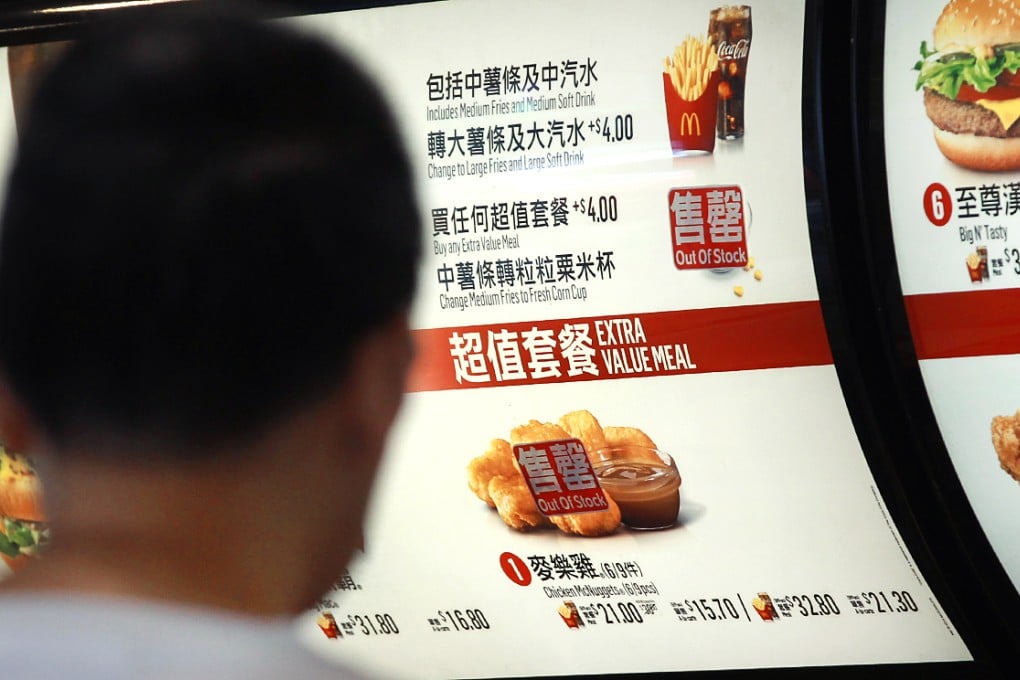Hong Kong eyes new food-import regulations after 'rotten meat' scandal
After a safety scandal in which McDonald's admitted to buying from a supplier selling rotten meat, new import regulations may be next

The government will review the regulation of cooked-meat imports after the "rotten meat" scandal that has engulfed McDonald's in Hong Kong and a mainland supplier.

Under current law, importation of cooked meat does not require a permit. But traders have to keep proper records and provide them when asked. For raw meat, traders need import permits with a record of the place of origin and supplier.
The government's move follows a scandal over the discovery that the McDonald's fast food chain in Hong Kong had bought meat from the Shanghai factory of supplier Husi, which is under investigation for reprocessing rotten meat and selling it.
Assistant director of food and environmental hygiene Dr Lee Siu-yuen also said the department was open to introducing a system for cooked meat similar to that for raw products.
But a catering industry representative said such a system could delay supplies to the city's biggest restaurant chains.
Varieties of cooked meat were so broad it would not be easy for the government to classify which products should require permits, said Simon Wong Ka-wo, chairman of the Chamber of Food & Beverage Industry of Hong Kong.